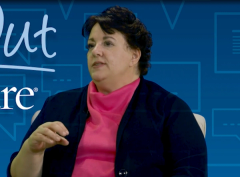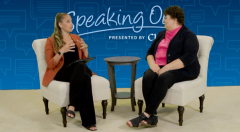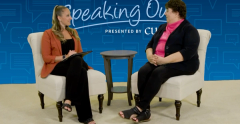
Tailoring Breast Cancer Treatment: The Role of Genomic Testing
As part of its Speaking Out video series, CURE spoke with Marla Sustin, from University Hospitals Seidman Cancer Center, about personalized therapy in breast cancer care.
Episodes in this series

Genomic testing plays a pivotal role in tailoring breast cancer treatment, particularly in the context of anti-estrogen therapy.
As part of its Speaking Out video series, CURE® spoke with Marla Sustin, a nurse practitioner at University Hospitals Seidman Cancer Center in Cleveland, about the personalization of anti-estrogen therapy in breast cancer care.
Genomic testing enables health care providers to identify specific medications and treatment protocols that would be most effective for a particular type of breast cancer. With this, the Breast Cancer Index helps health care providers decide on the appropriate length of endocrine therapy for patients. Initially, many patients were prescribed five years of therapy, but research has shown that this may not be the best approach for everyone. The Breast Cancer Index provides insights to providers surrounding a patient's risk of recurrence and whether they would benefit from extended therapy beyond five years.
Sustin emphasized how these results play a role in shared decision-making with providers. Patients should actively participate in this process and voice their preferences. Factors such as quality of life and tolerability of medications also play a significant role in treatment decisions. For example, anti-estrogen therapy can come with side effects like hot flashes, bone pain, and even depression. Patients should consider these factors when deciding on the duration of therapy.
“Allowing patients to have control of (their treatment options), having more information is always the key. And then they can make, along with their provider, the best decision for them, and they know what their risk (for recurrence) is,” she said, adding that patients can also seek reliable information from trusted sources to educate themselves on their options to make a more informed decision.
This knowledge empowers patients to ask questions, understand their options and have meaningful discussions with their health care providers. Ultimately, shared decision-making between patients and health care professionals is crucial in navigating the complex landscape of breast cancer treatment and ensuring the best possible outcome.
For more news on cancer updates, research and education, don’t forget to








